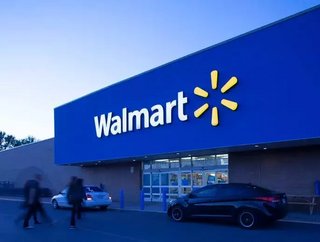Walmart and Tesco join leading companies in scaling up supply chain sustainability

The world’s largest retailer, Walmart has been joined by three more of the top 20 retail companies – CVS Health, Target Corporation and Tesco – in collecting data from suppliers to reduce environmental risk and cut carbon emissions in the supply chain.
CDP, formerly known as the Carbon Disclosure Project, said that “retail powerhouses are stepping up on supply chain sustainability”.
It continued: “The leadership shown by the retail sector is part of a wider surge of action from private and public-sector organisations, harnessing their purchasing power to tackle climate change, deforestation and water security.
Ten years after CDP started collecting supply chain data on behalf of the world’s largest purchasing organisations, 115 organisations – representing a combined annual spend of more than US$3.3 trillion – are now requesting data from over 11,500 suppliers.
This is more than a 15% increase from last year, when 99 organisations requested data.
Sonya Bhonsle, Head of Supply Chain at CDP, commented: “With emissions in the supply chain on average around four times greater than those from a company’s direct operations – and rising to up to seven times greater for retailers and consumer-facing companies – large multinational corporations cannot comprehensively address their environmental impact without looking to their supply chains.
“It’s very encouraging to see so many of the world’s biggest buyers taking supply chain sustainability seriously. By requesting data from their suppliers, they are shining a light on the risks hidden deep within their production chains – and uncovering a myriad of opportunities for reducing their overall environmental footprint, boosting innovation and cutting costs.”
The rise in companies scrutinising their supply chains coincides with growing momentum behind the take-up of science-based targets – goals that allow companies to reduce their emissions in line with the decarbonisation required to keep global temperature increase below two degrees Celsius, the central aim of the Paris Agreement.
SEE ALSO:
-
Global IT consultancy Capgemini unveils significant carbon footprint reduction
-
McDonald's signs deal to drive down carbon footprint of European fleet
The Science Based Targets initiative (SBTi), which helps companies develop and approves such targets, requires companies to set scope 3 targets if their scope 3 emissions account for at least 40% of their total emissions. For global retailers that do not manufacture many of the products they sell, scope 3 emissions in their supply chain can be far greater than 40%.
Ariane Grazian, Senior Manager, Walmart Sustainability at Walmart, which has been requesting data from its suppliers for ten years, commented: “We are proud of the improvements we’ve made in reducing our own emissions, but we aim to do more.
“That’s why Walmart is working with CDP, our suppliers and others on Project Gigaton – an approved science-based target initiative aimed at avoiding a gigaton (one billon metric tons) of emissions from the global value chain by 2030. Walmart is collaborating with CDP’s supply chain program to accelerate action and track suppliers’ progress toward Project Gigaton.
In addition to the retailers, other organisations which have begun requesting supplier data through CDP in 2018 include:
- Belgian-Brazilian company AB InBev, the world's biggest brewer with revenues of US$46 billion in 2016, and it’s Brazilian subsidiary AmBev;
- Los Angeles Department of Water & Power, the main municipal utility in the United States, serving over four million residents;
- Leading specialty chemicals companies Croda (UK) and Arkema (France); and
- Royal Bank of Canada, the largest bank in Canada by market capitalisation.
They join many of the world’s leading corporations, including Bank of America, Barclays, Dell Inc., Imperial Brands, Juniper Networks, Microsoft, LEGO, L’Oréal, Novartis, NRG Energy, Phillips Lighting, Philip Morris International, Royal Phillips, the U.S. General Services Administration, and Virgin Money Holdings, in engaging their supply chains through CDP.
Jennifer Silberman, Vice President, Corporate Responsibility at Target commented: “The future of Target’s business depends on taking care of the resources we have today, so we are constantly working to find more environmentally friendly ways to bring guests the products they want.
“We have been reporting our own emissions to CDP since 2012 and will now seek this data from key Target suppliers to better support them in achieving greater efficiency, investments in innovation and sustainable choices.
“As Target puts the needs of people, communities and the planet at the heart of how we work today, to build a better tomorrow, we are confident this new work with CDP will be a catalyst for change across the industry.”






